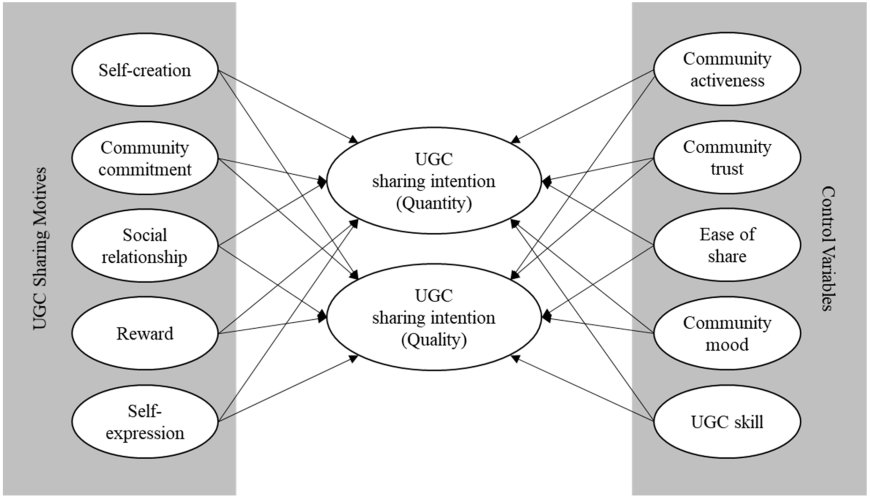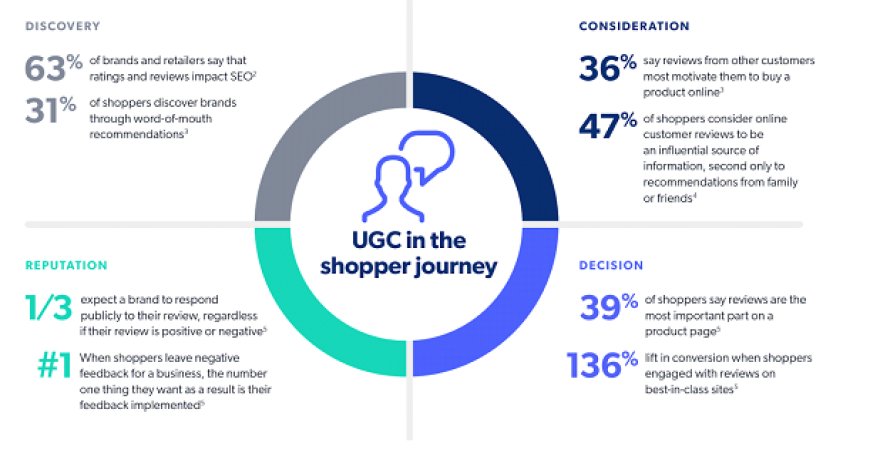Full Guide To Making User-Generated Content on Websites and Social Media Platforms - $250-$500 Extra a Day!

Introduction:
In the digital age, user-generated content (UGC) has become a driving force behind online platforms. From social media networks to websites, UGC plays a pivotal role in shaping online communities and influencing public discourse. However, with the power of UGC comes the responsibility to review and moderate the content shared by users. This article explores the significance of reviewing and moderating UGC, delves into the challenges faced by platforms, and highlights the strategies and tools employed to maintain a safe and engaging online environment.
UGC's Impact on Online Communities

User-generated content has transformed the way people interact online. It has given a voice to individuals, fostering inclusivity and diversity of perspectives. UGC empowers users to share their experiences, knowledge, and creativity, fostering engagement and building online communities.
Upholding Community Guidelines
While UGC brings numerous benefits, it also introduces risks such as hate speech, misinformation, and harassment. Reviewing and moderating UGC is crucial to ensure compliance with community guidelines and maintain a safe and respectful environment for all users. Effective moderation practices encourage civil discourse, safeguard against harmful content, and protect users from online abuse.
Scale and Volume
Websites and social media platforms generate vast amounts of content every second. The sheer scale makes manual moderation impossible, necessitating the use of automated tools. However, such tools may struggle with context-specific nuances, leading to false positives or negatives in content moderation.
Content Complexity and Subjectivity
UGC encompasses a wide range of content, including text, images, videos, and audio. Assessing the intent and context behind each piece of content is a complex task. The subjective nature of content interpretation poses challenges in consistent moderation and can result in inconsistencies or bias in decision-making.
Time Sensitivity
News spreads rapidly on social media, requiring swift action in content moderation. However, striking a balance between timely response and accurate evaluation can be difficult. Moderators often face pressure to make quick decisions, which may lead to errors or omissions.
Emerging Forms of Harmful Content
As technology evolves, so do the methods of sharing harmful content. Deepfake videos, manipulated images, and other forms of misinformation present new challenges in content moderation. Platforms must continually adapt their strategies to combat emerging threats effectively.
Clear Community Guidelines
Establishing comprehensive community guidelines is fundamental to UGC moderation. Clear rules and policies help users understand what is acceptable behavior and content. Platforms should communicate guidelines effectively and regularly update them to address emerging concerns.
User Reporting Mechanisms
Empowering users to report inappropriate content or behavior plays a vital role in content moderation. Platforms should provide accessible and user-friendly reporting mechanisms. Timely response and feedback to users' reports help foster trust and create a cooperative environment.
Human Moderation and Automation
Combining human moderation with automated tools can optimize content review. Automated systems can flag potentially harmful content, while human moderators provide the essential context and judgment. Training moderators on platform-specific policies and keeping them updated on emerging trends is crucial.
Machine Learning and Artificial Intelligence
Leveraging machine learning and artificial intelligence (AI) technologies can enhance content moderation. AI algorithms can assist in identifying patterns, context, and potential risks. Continual refinement and improvement of these algorithms are necessary to minimize false positives and negatives.
The Future of Reviewing and Moderating User-Generated Content
As UGC continues to shape online platforms, the future of content moderation will rely heavily on advanced technologies. AI-driven content analysis, natural language processing, and image recognition will aid in more accurate and efficient moderation. However, striking a balance between automation and human oversight will remain crucial to address context-specific nuances.
Platforms will also need to prioritize transparency in content moderation processes. Open communication about moderation practices and the criteria for decision-making will foster trust among users and help mitigate concerns about bias or censorship.
Collaboration among platforms, policymakers, and civil society organizations is essential for establishing industry-wide best practices. Sharing knowledge, insights, and challenges can drive innovation and improve content moderation practices across the digital landscape.
Ethics play a crucial role in reviewing and moderating user-generated content. Content moderation decisions can have significant impacts on individuals and communities, and platforms must navigate these ethical considerations with care.
Transparency in content moderation processes is vital to ensure fairness and accountability. Platforms should clearly communicate their guidelines, policies, and decision-making criteria to users. Additionally, providing avenues for appeal and addressing user concerns in a timely manner promotes a sense of fairness.
Addressing biases and ensuring impartiality in content moderation is another ethical consideration. Moderators must be trained to recognize and mitigate their own biases to avoid unfair treatment of certain groups or viewpoints. Platforms should also consider diversifying their moderation teams to reflect the communities they serve and reduce the risk of unintentional bias.
Respecting freedom of expression is essential, but it must be balanced with the need to prevent harm. Platforms should strive to strike a delicate balance between allowing open dialogue and maintaining a safe and respectful environment. Clear guidelines on acceptable behavior and content help navigate this ethical tightrope.
User Education and Digital Literacy
Promoting user education and digital literacy is key to fostering responsible online behavior and reducing the burden of content moderation. By equipping users with the necessary skills and knowledge, platforms can create a more engaged and responsible community.
Platforms should invest in educational initiatives that promote digital literacy, critical thinking, and responsible content sharing. This includes educating users about the potential risks of sharing misinformation, the consequences of online harassment, and the importance of respectful discourse.
Furthermore, platforms can implement features that provide users with real-time feedback on the quality and credibility of the content they engage with. This can help users make informed decisions about the content they share, reducing the spread of misinformation and harmful content.
By empowering users with the tools and knowledge to navigate the digital landscape responsibly, platforms can alleviate some of the challenges associated with content moderation while promoting a more informed and engaged online community.
Conclusion
Reviewing and moderating user-generated content is an ongoing challenge for websites and social media platforms. It requires a delicate balance between upholding community guidelines, protecting users, and respecting freedom of expression. Leveraging advanced technologies, fostering transparency, addressing biases, and promoting user education are crucial strategies in navigating these challenges.
As online communities continue to evolve, platforms must adapt their moderation practices to keep pace with emerging threats and societal changes. By prioritizing ethical considerations, embracing technological advancements, and fostering collaboration, platforms can create a safer and more inclusive online environment for all users.
Ultimately, effective content moderation is a shared responsibility that requires the collective efforts of platforms, users, policymakers, and civil society organizations. Together, we can shape a digital landscape that fosters meaningful engagement, respects diverse perspectives, and safeguards the well-being of online communities.







